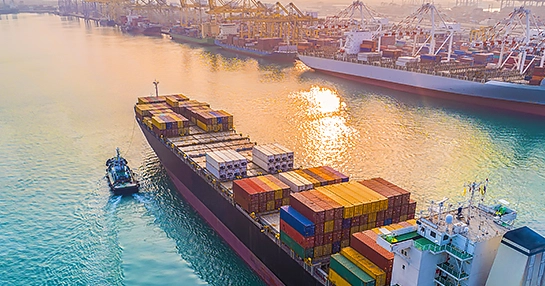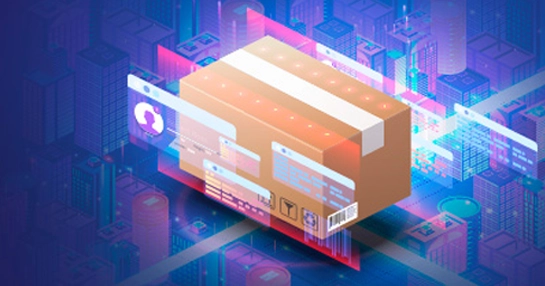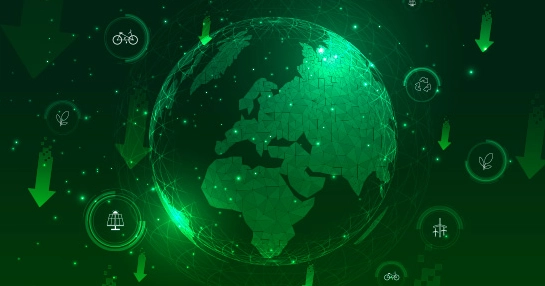M&A activity in the oil and gas industry has exploded, reshaping procurement and supply chain dynamics.
Strategic sourcing in the industry isn't just about cost-cutting anymore — it's about proving your value, embracing innovation and becoming indispensable. This podcast provides the critical playbook for survival in this new environment.
Discover how top companies like ExxonMobil and ConocoPhillips are rewriting the rules, and learn the three key strategies suppliers must adopt to stay competitive.
What You'll Hear:
- The strategic drivers behind record-breaking M&A activity in oil and gas
- How major deals are reshaping supplier relationships and procurement strategies
- Crucial tactics for suppliers to remain competitive in an era of industry consolidation
Don't get left behind. Listen now and turn industry disruption into your competitive advantage.
PODCAST SUMMARY
Speaker 2
You know, talk about like a real shake up the oil and gas industry. I mean, they're practically rewriting the rulebook with this. This whole wave of mergers and acquisitions we're seeing, and we've got the inside scoop, no headlines, just the facts straight from this White paper.
Speaker 1
Yeah, it's been impossible to ignore.
Speaker 2
Right, like out of control.
Speaker 1
Totally. We're talking a record-breaking year in 2023. Think like $432 billion. Billion with a B in M&A.
Speaker 2
Activity. Whoa, hold on. Let's unpack that 432 billion. That's that's.
Speaker 1
It's A50. 2% jump from the year before.
Speaker 2
It's not just a wave, it's like a tsunami of deals. What is the? What is the story there?
Speaker 1
Honestly, it's like someone hit the Fast forward button on industry consolidation. Yeah, I mean aisle prices. Those definitely lit the match, you know, made expansion tempting, but you're also seeing global uncertainty, right? It kind of pushes companies toward the stability of these mega mergers.
Speaker 2
Yeah, it's like. It's like battening down the hatches, but on a corporate scale, you know?
Speaker 1
Exactly. And then, of course, there's the energy transition looming large, so the pressure is definitely on for traditional oil and gas companies to. Ohh for sure merging or acquiring that can be the quickest route to new Tech. New resources you know, get a foothold in that future energy landscape.
Speaker 2
Totally, totally. It's like it's like a high stakes poker game and everyone's just trying to get the right hand to stay in the game.
Speaker 1
That's a good way to put it.
Speaker 2
Speaking of strategic plays, the White Paper. The Chevron and Hess Steel that was seem particularly interesting. What's the what's the take away there?
Speaker
Hmm. Yeah.
Speaker 1
That is a great illustration of how companies are like playing chess, not checkers. It's not just about size anymore. Sure, Chevron gets bigger, but the real prize Hess steak in Guyana's offshore oil fields, and that's a region that's projected for massive grace, right? So Chevron's making a long term bet.
Speaker 2
OK.
Speaker 1
On a strategically vital location for future energy production.
Speaker 2
So it's not just grabbing any assets, it's about anticipating. Where the industry is headed and snatching up the keys to the Kingdom, basically wow.
Speaker 1
Precisely, and this is where things get really fascinating, even for folks who aren't following every single deal, because these mergers, they have ripple effects throughout the entire industry, particularly when you think about procurement and supply chains, yeah.
Speaker 2
Really. Yeah. Procurement and supply. See, those aren't exactly the first things that like pop to mind when I hear oil and gas Mega merger. But you're saying they're actually crucial.
Speaker 1
Absolutely. These deals, I mean, they don't happen in a vacuum, right? Imagine trying to blend the operations of two like absolute oil giants. It's it's almost like mixing oil and water, if you will. Each company has its own.
Speaker 2
OK.
Speaker 1
Like. Sprawling network of suppliers and contracts and just ways of doing business, procurements and supply chain teams.
Speaker 2
Right.
Speaker 1
They're the ones tasked with making that blend seamless and profitable, which is, you know, kind of important. Yeah. Yeah.
Speaker
Hmm.
Speaker 2
Just a little. Bit right, OK, so. They're not just ordering more paper clips after a merger. What's the real impact here on these procurement and supply chains?
Speaker 1
Think of it as like a high stakes game of efficiency. They're on the front lines of finding cost savings, right? Negotiating better deals with suppliers, because now they've got more leverage, streamlining logistics.
Speaker 2
OK. Yeah, makes sense.
Speaker 1
You know to eliminate redundancies, basically figuring out how to make this whole giant machine just hum.
Speaker 2
Yeah. And though White paper brought up the ExxonMobil and Pioneer deal as like a prime example of this in.
Speaker 1
Action. Right. Exactly. Remember how you were talking about strategic acquisitions?
Speaker 2
Yeah.
Speaker 1
ExxonMobil wasn't just buying land with pioneer, they were buying their like expertise in shale oil production, especially in the Permian Basin, which you know.
Speaker 2
Oh, OK. Oh, it's like they went shopping for the best brain trust in shale to, like, just amp up their own operations.
Speaker 1
Precisely, they're looking to maximize the value of those resources and become a leaner, meaner shale producing machine. And that's where the real potential of these mergers lies. Not just in getting bigger, but in getting smarter and more efficient. But of course, it's not always smooth.
Speaker 2
Right, right.
Speaker 1
Merging two companies, even with aligned goals, I mean it is incredibly complex. They're cultural differences. You have clashing systems and just the sheer challenge of integrating 2 huge organizations it creates, you know, it creates uncertainty for everyone involved, particularly suppliers.
Speaker 2
Oh yeah. The White Paper specifically called out ensin energy as. Company feeling both the good and the bad of this whole consolidation trend. What's the lesson there?
Speaker 1
Yeah. Enson energy great example of how this M&A wave is impacting the entire supply chain. So as these oil and gas giants consolidate their bargaining power, it just skyrockets. And so we're seeing a major shift towards these performance based contracts.
Speaker
Yeah.
Speaker 2
Right. OK, so instead of the traditional, here's the price. Deliver the goods model. It's more like prove your value, show a sufficiency, and will reward you accordingly.
Speaker
Mm-hmm.
Speaker 1
You got it. It's a much higher stakes game for suppliers now. They can't just rest on their laurels. You know, they've got to demonstrate value beyond just price. They need to bring, like innovation, efficiency, strategic thinking to the table.
Speaker
MHM.
Speaker 2
The White Paper, called this smart sourcing, and it used the Conoco Phillips and Marathon Oil merger as a as a prime example of it in action. What did they do differently?
Speaker 1
Yeah. Conoco Phillips, I mean, they used that merger like brilliantly. It wasn't just about absorbing Marathon Oil's assets. They were all about.
Speaker
Thanks.
Speaker 1
Strategic sourcing on a massive scale, so they consolidated their drilling inventory, streamlined operations in the back and field, even brought in like new tech like a super zipper fracking that Marathon Oil wasn't even using.
Speaker 2
Hmm. So they like cherry, pick the best strategies and technologies from both companies to create this like lean mean oil producing.
Speaker 1
Machine. Exactly. Wow. And this brings up, I think, a pretty critical question for suppliers in this new landscape adapter become obsolete, right?
Speaker 2
Yeah. Yeah, well, and what's the, uh, what's the white papers take on that? Because, I mean.
Speaker 1
They weren't exactly sugarcoating it. The message was.
Speaker 2
No.
Speaker 1
Pretty clear suppliers need to evolve, diversify and prove their worth in this new reality, or they risk getting left behind.
Speaker 2
Yeah, it's a. It's a tough reality check, right? Suppliers who can't like, keep pace with the demands of these, you know, larger, more sophisticated companies after these mergers, it's going to be.
Speaker 1
It is. It is. A struggle? Yeah, but I think there's also a huge opportunity here. I mean, for those who can innovate, provide, you know, more specialized services and really demonstrate their value in this new landscape.
Speaker
Oh.
Speaker 1
They're not only going to survive, they're going to thrive.
Speaker
If.
Speaker 2
So the high stakes game, but the rewards are there for those who can step up their game. And Speaking of the future, the White Paper also touched on this intriguing idea of shale 2.0. What is that?
Speaker
Yeah.
Speaker 2
All about shale.
Speaker 1
2.0 is fascinating. It's like it's the recognition that the next wave of shale production, it's not going to be about brute force.
Speaker 2
OK.
Speaker 1
It's about brains, right? Right. Companies are using acquisitions to gain access to, like, cutting edge to. AI, you know, real time analytics, automation all to, you know, really just squeeze every bit of efficiency from these existing wells.
Speaker 2
So these mergers, they're not just about consolidating resources, right? It's about like positioning companies to win in this, this new, what would you call like data-driven tech driven era of shale production?
Speaker 1
Absolutely. And that's I think a really key take away for me M and a sure it can certainly be about getting bigger, but the real winners, they're going to be the ones who use it as like a launchpad to become smarter, more efficient and ultimately, you know, more adaptable. It's about riding the wave of change, not just trying to stay afloat.
Speaker 2
Right. Right in the wave. I like that. And it it sounds like the companies that figure out how to ride that wave the best they're going to be the ones calling the shots in the future of the oil and gas industry.
Speaker 1
Couldn't have said it better myself.
Speaker 2
Well, a huge thank you to you for diving into this. I mean this really complex topic with us and and really just shedding light on all these fascinating trends.
Speaker 1
My pleasure.
Speaker 2
And for our listeners, if you want to explore the source material for yourself, you'll find a link to the White Paper in the show notes. Until next time, keep learning, keep asking questions, and keep diving deep.









